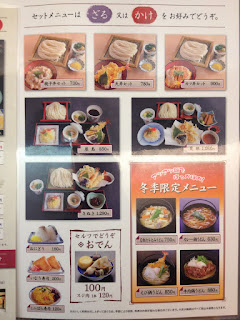Let's get into the swing of things with posts from my Shikoku trip. This was last year's summer vacation, over 10 months ago. I spent about six days on the island, bookended by two days in nearby Okayama prefecture.
Shikoku means "Four Nations" or "Four Provinces" and the four current prefectures on the island reflect that history. It's located near Okayama, Osaka, and Hiroshima, isolated from Honshu and Kyushu islands by the Inland Sea. With a mountainous interior and the isolation water brings, it's remained mostly rural. There are rice fields and fruit orchards as well as a good bit of history and nature to experience.
Due to weather issues, most of the "nature" part of my vacation was eliminated, but there is a lot more to experience. As far as tourism goes, most Japanese people identify Shikoku with the 88-temple pilgrimage, an expensive and difficult undertaking that can be very rewarding. But there are also castles, museums, and hiking courses to be found.
Shikoku isn't really known for a variety of food, though two dishes stand out. One, which I didn't try, is grilled bonito. Bonito is a fish similar to, and in the same family as, tuna. This is most famous in Kochi; I spent a few hours in Kochi but didn't have any bonito.
The other dish, which everybody in Japan knows, is udon. Udon is a type of noodle served similar to ramen, in a broth with various toppings. Udon is distinguished by its chewy texture and thick noodle. Made from wheat flour, the most basic and famous version is kake udon, which you'll see below.
There are different types of udon, but the type found in Takamatsu city is considered the main style of udon served in Japan. Kagawa-style (Sanuki) udon restaurants are easily found up and down the shopping street in Takamatsu, not far from the train station. Japanese foodies take day trips to Takamatsu to sample various restaurants' offerings. The restaurant I visited is above.Here is my kake udon, with chopped scallions and kamakobo (fish cake). It was quite delicious, and even this basic small order was filling enough for me.
Here's the menu.
A variety of options is available if you're looking for something other than plain udon.
Curry udon sounds right up my alley - it's udon with Japanese curry added on top.
I got the bowl above from the cafeteria at the ferry terminal on Megijima Island. It was pretty good!
Something that tends to be forgotten is the differing local tastes that provide some interesting snack opportunities.
This is spicy chicken which I picked up from a convenience store. It's tandoori flavored!
Yuzu is a lemon-like fruit frequently used to make sodas and drinks similar to lemonade. It's grown on Shikoku and in Okayama.
I found a local brewery with this Sanuki Draft Beer. Sanuki is the old name for Kagawa, one of Shikoku's four prefectures, so the name shows up occasionally. The beer itself wasn't bad.
It might have just been timing, but I found this kiwi-flavored sandwich "lunch pack" at a convenience store too. I've seen limited flavors come from time to time, but it seems that there are some Lunch Packs that only show up in local areas.
Finally, naan. Why naan? This is the first time i saw naan available at CoCoIchi, my favorite curry restaurant. It's okay, but not the same as real naan.
While Shikoku doesn't have a very broad offering of unique foods, what it does have is tasty and fun!












No comments:
Post a Comment